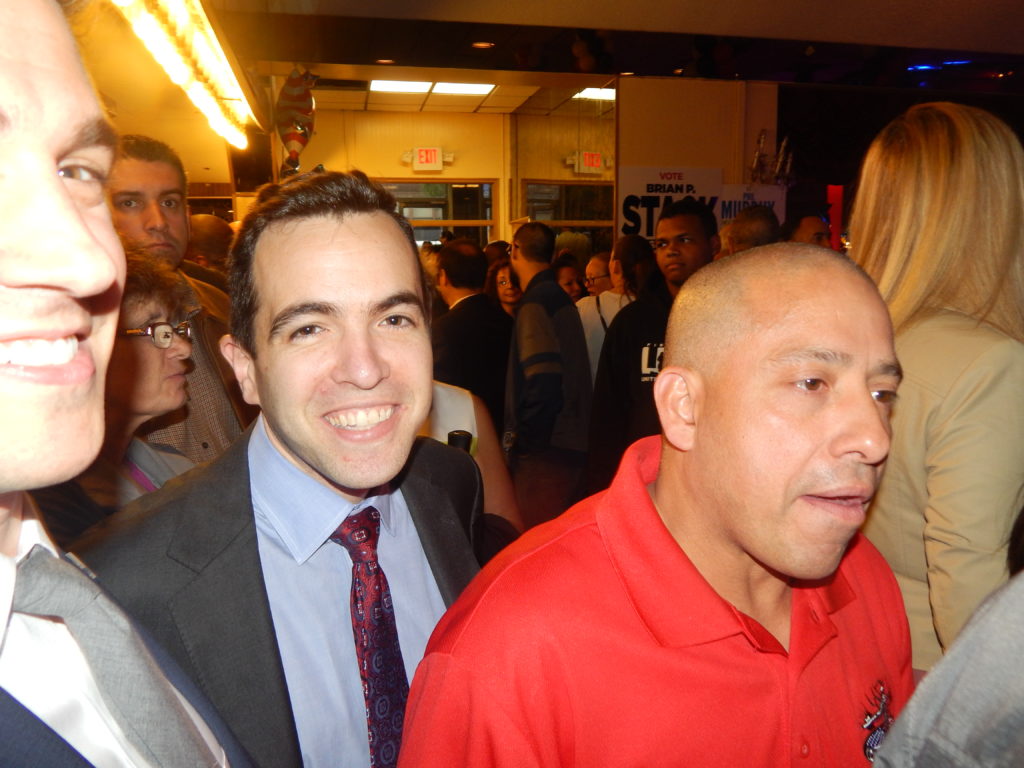
New Jersey Attorney General Matthew J. Platkin today traveled to Boston for a key hearing in his challenge to President Donald Trump’s unconstitutional executive order to terminate birthright citizenship, according to an AG’s Office press release. The case is led by New Jersey, Massachusetts, and California on behalf of a coalition of 18 states, the District of Columbia, and the City of San Francisco. In today’s hearing before the U.S. District Court for Massachusetts, attorneys representing New Jersey and partners in the coalition argued for a preliminary injunction barring the President’s executive order from taking effect.
“President Trump’s unconstitutional executive order to end birthright citizenship has instilled fear in families across New Jersey and our nation,” said Governor Phil Murphy. “I am proud that New Jersey is leading the fight to protect this basic right for our residents. We remain committed to doing what is necessary to uphold and defend our nation’s Constitution.”
“We are in Boston today to fight for the rights of our residents and for the rule of law,” said Attorney General Platkin. “Presidents are not kings and they cannot rewrite the Constitution with the stroke of a pen. Birthright citizenship has been enshrined in our Constitution for 157 years, and we are here to make sure that no one tramples upon this fundamental right that is a core part of our identity as nation.”
President Trump issued an executive order on January 20, 2025 to end birthright citizenship, in violation of the Fourteenth Amendment of the United States Constitution and Section 1401 of the Immigration and Nationality Act.
To stop the President’s unlawful action, which will harm hundreds of thousands of American children, the coalition has sued in the District of Massachusetts to invalidate the executive order and to enjoin any actions taken to implement it. The states requested immediate relief to prevent the President’s order from taking effect through a preliminary injunction.
Birthright citizenship dates back centuries—including to pre-Civil War America. Although the Supreme Court’s notorious decision in Dred Scott denied birthright citizenship to the descendants of slaves, the post-Civil War United States adopted the Fourteenth Amendment to protect citizenship for children born in the country. As the States’ filing also explains, the U.S. Supreme Court has twice upheld birthright citizenship, regardless of the immigration status of the child’s parents.
If allowed to stand, this executive order—for the first time since the Fourteenth Amendment was adopted in 1868—would mean thousands of babies born each year in New Jersey who otherwise would have been citizens will no longer enjoy the privileges and benefits of citizenship.
The children who are stripped of their United States citizenship lose their most basic rights, and will be forced to live under the threat of deportation. They will lose eligibility for a wide range of federal services and programs. They will lose their ability to obtain a Social Security number and, as they age, to work lawfully. And they will lose their right to vote, serve on juries, and run for certain offices. Despite the Constitution’s guarantee of citizenship, thousands of children will—for the first time—lose their ability to fully and fairly be a part of American society as a citizen with all its benefits and privileges.
In addition to harming hundreds of thousands of residents, the President’s order significantly harms the States themselves, too. Among other things, this order will cause the States to lose federal funding to programs that they administer, such as Medicaid, the Children’s Health Insurance Program, and foster care and adoption assistance programs, which all turn at least in part on the immigration status of the resident being served. States will also be required—on no notice and at their considerable expense—to immediately begin modifying their operation and administration of benefits programs to account for this change, which will impose significant burdens on multiple agencies that operate programs for the benefit of the States’ residents. The States’ filing explains that they should not have to bear these dramatic costs while their case proceeds because the executive order is directly inconsistent with the Constitution, the Immigration and Nationality Act, and two U.S. Supreme Court decisions.
In court today, this matter is being handled by Solicitor General Jeremy Feigenbaum, Deputy Solicitor General Shankar Duraiswamy, and Deputy Attorneys General Viviana Hanley, Shefali Saxena, and Elizabeth Walsh.
States that have joined New Jersey in this lawsuit include California, Massachusetts, Colorado, Connecticut, Delaware, Hawaii, Maine, Maryland, Michigan, Minnesota, Nevada, New Mexico, New York, North Carolina, Rhode Island, Vermont, and Wisconsin, as well as the District of Columbia and the City of San Francisco.
(Visited 75 times, 79 visits today)
Attorney General Platkin recently made headlines for his participation in a federal court hearing regarding President Trump’s controversial Executive Order on Birthright Citizenship. The Executive Order, which seeks to end birthright citizenship for children born in the United States to non-citizen parents, has sparked a heated debate across the country.
During the court hearing, Attorney General Platkin argued that the Executive Order is unconstitutional and goes against the principles of the 14th Amendment, which guarantees citizenship to all persons born or naturalized in the United States. He emphasized that birthright citizenship is a fundamental right that has been upheld by the Supreme Court in numerous landmark cases.
Platkin also pointed out that the Executive Order would have far-reaching consequences for millions of individuals and families in the United States, many of whom have lived in the country for generations. He stressed that revoking birthright citizenship would create a state of uncertainty and fear among immigrant communities, leading to potential legal challenges and social unrest.
In response, the Trump administration defended the Executive Order as a necessary measure to address concerns about “anchor babies” and birth tourism. They argued that birthright citizenship has been exploited by individuals seeking to gain citizenship for their children through fraudulent means.
The federal court hearing on the Executive Order is expected to be a long and contentious process, with both sides presenting their arguments and evidence in support of their positions. Attorney General Platkin’s involvement in the case highlights his commitment to upholding the rule of law and defending the rights of all individuals, regardless of their immigration status.
As the debate over birthright citizenship continues to unfold, it is clear that Attorney General Platkin will play a crucial role in shaping the outcome of this important legal issue. His dedication to justice and fairness will undoubtedly have a lasting impact on the lives of countless individuals who call the United States their home.

